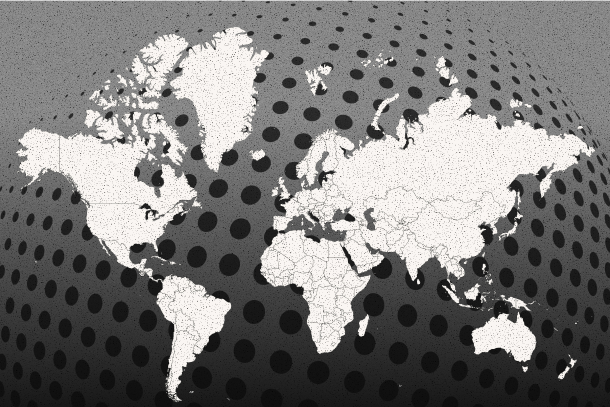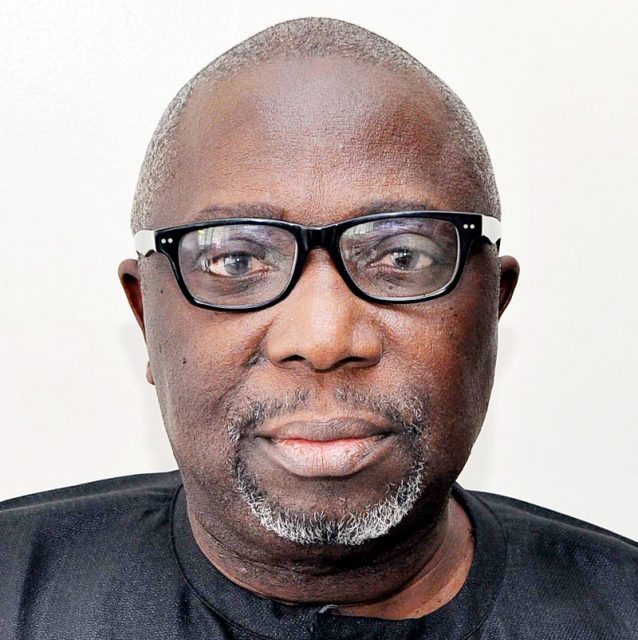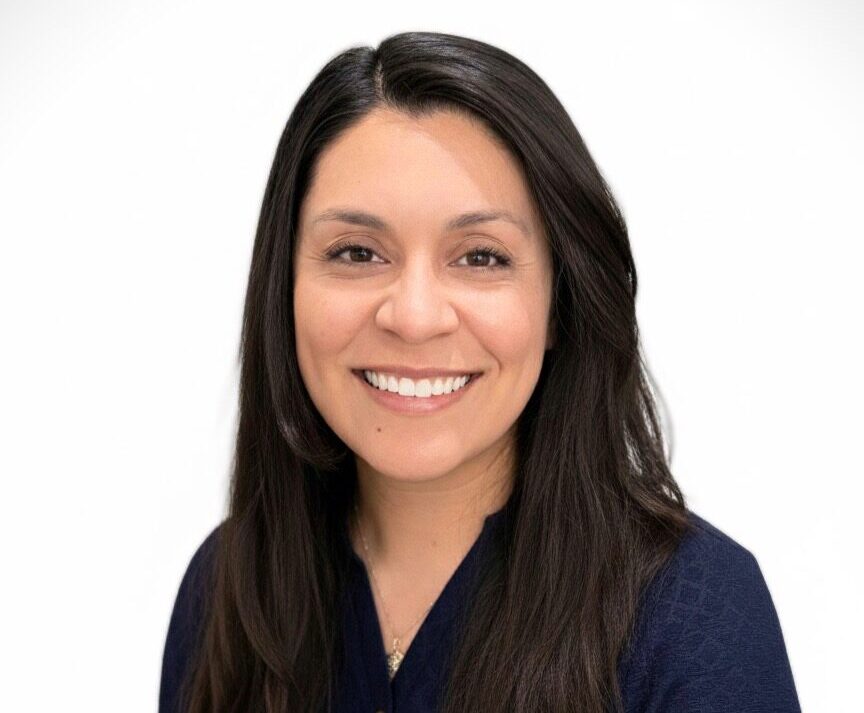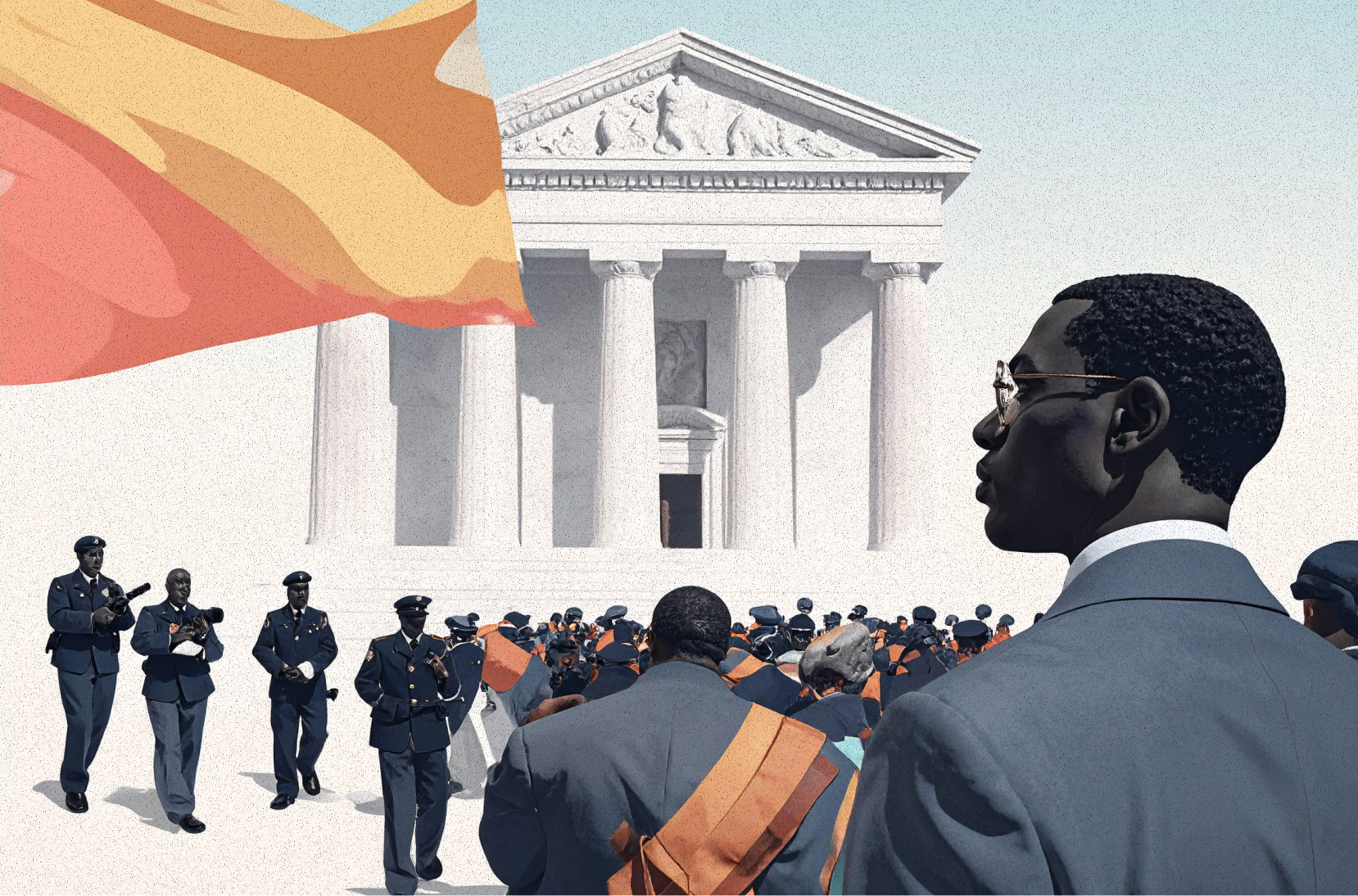Editor’s Note
This essay is part of CNTI’s “Letters from the Field” series, in which journalists from around the world share their experiences reporting in restrictive spaces and share advice for journalists in the U.S.
Before Nigeria’s Fourth Republic began in 1999, it was widely acknowledged that no press, with the possible exception of South Africa under apartheid, had endured such brutal attacks as the Nigerian media did in post-colonial Africa.
In 1992 alone, the authoritarian president General Ibrahim Babangida proscribed nearly two dozen newspapers and enacted five punitive decrees, all of which criminalized criticism and punished dissent. Among them were Decree 29, which proposed the death penalty for people who made claims deemed capable of inciting social disorder; Decree 48, which, in one instance, banned 17 news platforms deemed to have challenged the regime’s moral authority; Decree 35, which granted the president powers to confiscate or ban any publication; and Decree 43, which established impossibly stringent conditions for newspaper registration.
When Nigeria returned to “democratic” rule in 1999, our hope was that the barbarism of the military era — manifested sometimes in repeated physical violence against working journalists, police and military raids and occupation of newspapers and other press houses, jailing of journalists, economic losses by media organizations, psychological trauma and the forced exile of journalists — would all stop. Unfortunately, it did not.
Over the 25 years since Nigeria’s Fourth Republic was formed, journalists in Nigeria have continued to face attacks. According to data from the Press Attack Tracker of the Centre for Journalism Innovation and Development (CJID) — a robust and reliable database of press freedom violations — 179 journalists suffered physical attacks, unlawful arrests and other violations in Nigeria during the first five years of the country’s Fourth Republic (2000–2006), a period when violations ought to have been receding. Furthermore, of the 1,237 verified cases of violations against the press between 1986 and 2025, the past five years (2019–2024) have been the most scandalous.
Letters From the Field
From Afghanistan and Nigeria to Ukraine, journalists speak of exile, legacy, and resilience. Read their stories, insights, and calls to action.

The nature of attacks continues to mutate, ranging from internet shutdowns, targeted surveillance, mandatory licensing for online content and outright economic boycotts of media outlets. During the 2020 #EndSARS youth protests against police brutality, for example, the state pressured journalists covering the protests to cease reporting and imposed punitive fines of ₦3 million ($1,886.45) each on Channels Television, Arise News and Africa Independent Television for broadcasting “unverified” social media footage. In June 2021, the government banned Twitter for 222 days after the platform deleted a tweet by the then-Nigerian president for violating its policies.
Still, journalists in Nigeria continue to persevere. We are constantly innovating. And we have valuable lessons to share with our American counterparts, especially in light of the unfolding situation in the United States.
Journalism’s Indispensable Role in Democracy
Firstly, it is crucial to restate that journalism is a fundamental element of democracy and that any attempt to separate one from the other will automatically weaken both simultaneously. If a public official’s conduct aims to harm the democratic project, the journalistic imperative is to expose it without any hesitation and in a manner that informs and alerts the public to the danger inherent or manifested in that official’s behavior.
It is for this reason that power-hungry leaders — both those that are attempting to frustrate a democratic transition, as in Nigeria, and those that are trying to hijack an existing democracy — target journalists. Architects of such projects often begin by discrediting the media as an enemy of the people, thus programming the citizens to disbelieve what they read or hear from the media. The ploy, of course, is to hamstring the media not only from holding power accountable but also from being able to promote informed participation in a democracy. As the media are being assaulted, the institutions of the state are also being weakened or dismantled.
We are seeing this same pattern in the U.S. today. Many parts of the world had, since the end of World War II, looked to the U.S. for direction when faced with a moral crisis about democracy. It would appear that the U.S. itself now faces a profound moral crisis of its own regarding the future and possibly nature of its democracy. Whilst illiberal expressions have always been part of American democracy, it is debatable if the country has ever experienced a period as troubling as the present.
We know too well from our numerous examples in Africa that regimes that follow this playbook always end up creating deep and sometimes fatal political polarizations in their countries. Critical examinations have shown that the populism of such regimes is no more than a veneer to enthrone autocracy on the one hand and kleptocracy on the other hand.
The burden of the American press today, then, is the burden of the American community. The U.S. media must dig in and make a common purpose with American citizens.
The Power of Solidarity and Innovation
In the darkest and most ferocious moments of Nigeria’s totalitarian experience, two survival strategies worked for us: courage and community. Courage from journalists, but also courage from publishers and owners who had to measure sacrifice against the larger goals of democratic dividends. In the face of all state attacks, community cover was the most assuring.
During the military years, particularly in 1993, when the term “guerilla journalism” entered the vocabulary of Nigerian journalism as a form of dissent publishing against a repressive state, reporters would hold editorial meetings in the most bizarre places: workshop sites, church grounds and other public spaces where the state never expected journalists to be.
These same organizations helped get the news we reported to the people. Since newspaper copies could not be freely sold in the open market due to the risk of state oppression, trade union organizations, churches and community associations acted as vendors. Weekly, they would make renditions back to newspapers like The News and Tempo in the huge Lagos market, helping them survive the state’s onslaught without suffering debilitating market losses. There was a close connection between the community and the press, and a grateful community reciprocated by supporting the sacrifices of a loyal press.
Nothing in the practice of that era came as close to demonstrating the depth of public will in support of a press under attack as the revenue model that emerged under repression.
The current economic challenges facing American media, particularly its ossified business model and ongoing struggle to evolve a new revenue model, make recreating this difficult. Publishers sometimes put economic concerns above the importance of fact-based reporting, and small-town and community media, which are most vital in times like these, are disappearing or severely understaffed.
This is where professional organizations with a keen sense of human solidarity become crucial. At CJID, we have supported journalists under fire, provided legal aid, documented violations, offered digital safety training and fought for legal reforms.
We have found that the excesses of an overreaching repressive state can be managed by effectively using cultivated sources and maximizing networks of journalists. In 2016, for example, about a dozen newsrooms collaborated to form Leaks.ng, which increased their scale and impact. This initiative primarily focused on shared coverage and distribution to reduce costs, but it also served as a mechanism against legal retribution through the power of collective action.
This kind of model, paired with community engagement and support, has provided resilience and allowed us to stand up against press violations. News organizations in the U.S. could follow suit.
Current times in the United States require imagination and innovation. The most important part, however, is that journalists keep reporting. Unless the press stands up to authoritarian tactics, authoritarianism will not simply disappear of its own free will.
Dapo Olorunyomi is the publisher of Nigeria’s leading investigative news platform, Premium Times, and chief executive of the West African media think tank, Centre of Journalism Innovation and Development (CJID). His work as editor during the years of military dictatorship in Nigeria earned him the 1995 International Editor of the Year Award of the World Press Review, and the Press Freedom Award (1996) of the National Association of Black Journalists (NABJ), New York. In 2020, he was co-recipient of the International Press Freedom Award from the Committee for the Protection of Journalists (CPJ). In 2025, he was honoured with the Christopher Kolade Award for Media Leadership and Excellence in Nigeria. He is also a recipient of Nigeria’s national honour of Officer of the Order of the Niger (OON) for his work in support of democracy and freedom.
Share




